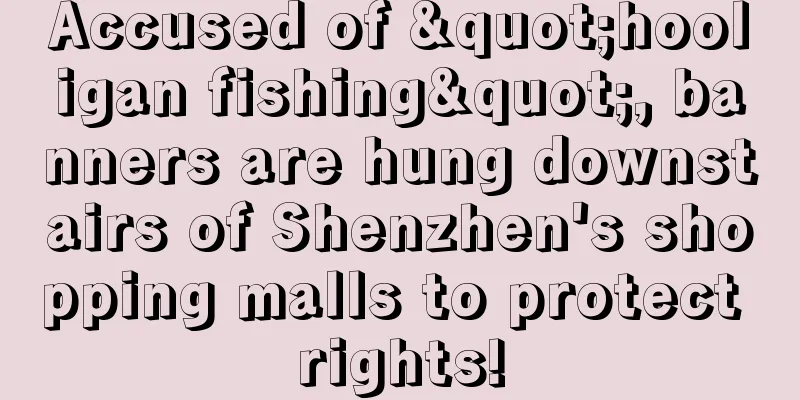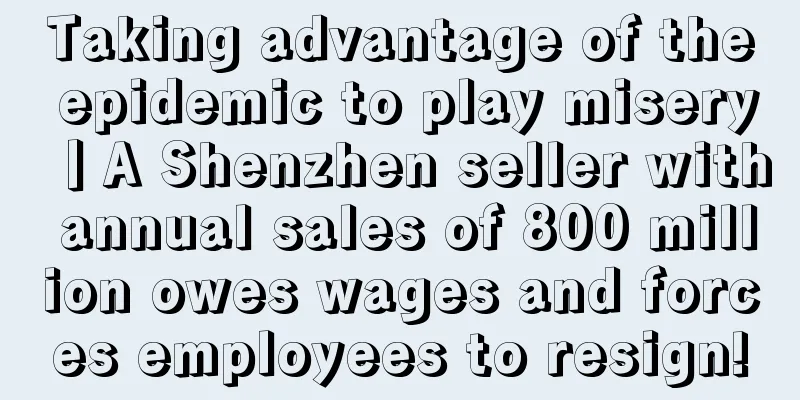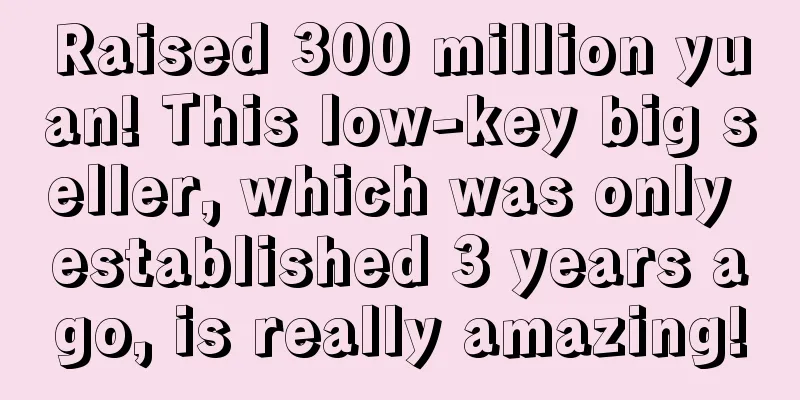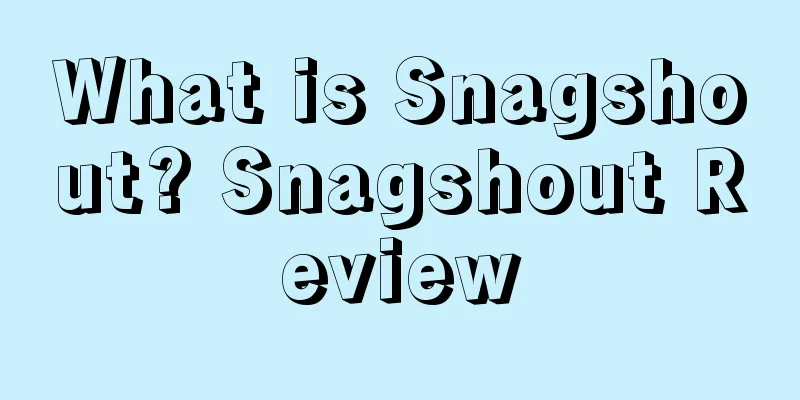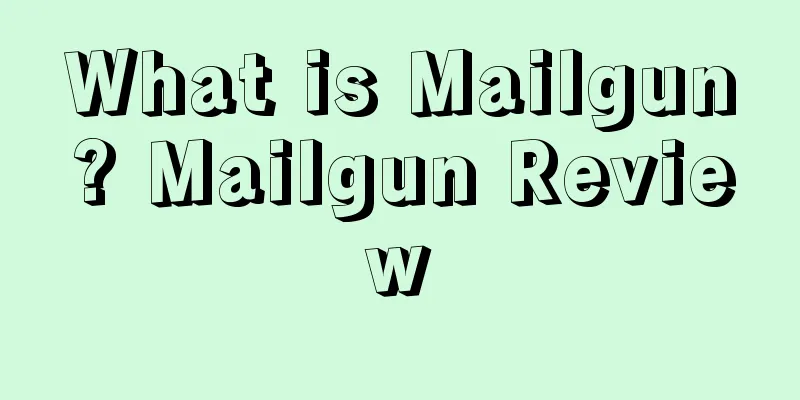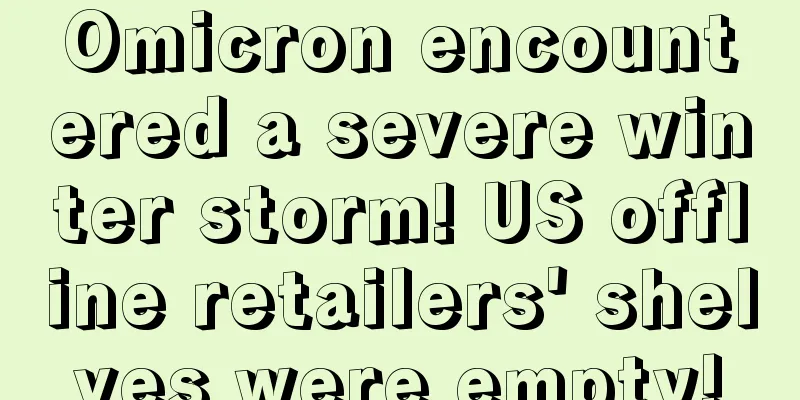|
Every peak season seems to be a turbulent time for cross-border sellers. Following Amazon's ban on the sale of LED headlight conversion kits and adjustments to the home kitchen category nodes some time ago, which sparked heated discussions among many sellers, a piece of news has once again swept the cross-border circle recently. The source of this conflict comes from the conflict between sellers. It was learned that on the morning of November 3, a seller in the seller communication group revealed that a big seller in Shenzhen was denounced by many sellers in the same industry. According to the leaked photos, many sellers can be seen hanging several banners with black letters on a white background, which read "Black-hearted company, gangster fishing!" and "No bottom line" downstairs of this big-selling company in Shenzhen. ▲ The picture comes from the seller communication group It is understood that the Shenzhen seller with the banner hanging at his door is one of the "Five Tigers of Bantian". He mainly operates a distribution model and sells products through multiple channels such as eBay, Amazon, Aliexpress, Wish, etc., and his business covers the global market. Due to its wide popularity, the news quickly attracted the attention of cross-border sellers once it was leaked. According to information disclosed by insiders, the cause of this turmoil can be divided into two camps: Some insiders said that the sellers who put up the banners had their products infringe on the brand of the Shenzhen seller , so they were sued for infringement by the seller, which resulted in their accounts being frozen. That’s why they had no choice but to put up the banners downstairs of the company. ▲ The picture comes from the seller’s disclosure Other insiders speculated that the Shenzhen seller might be "fishing" to earn settlement money. It is learned that the so-called "rogue phishing" refers to the situation in which the plaintiff seller or law firm disguises itself as a consumer or maliciously registers a trademark to lure the defendant seller to sell infringing products, thereby filing a lawsuit and causing the defendant seller's account funds to be frozen by a TRO (temporary injunction) until a settlement or victory in the lawsuit is reached. Judging from previous cases, since the US legal system is very conducive to the initiation of phishing lawsuits , such phishing cases basically occur in the United States, especially in Illinois, and some cross-border sellers will take advantage of this legal loophole. In 2020, there was a case in the cross-border circle where a domestic cross-border brand registered a trademark and commissioned a US law firm to file a lawsuit against more than 5,000 sellers. During this turmoil, a seller revealed that he had also received an email from an American lawyer commissioned by the Shenzhen big seller, informing him that there was patent infringement in the relevant products. If he was interested in settlement, he could contact the American law firm to discuss the settlement plan , which means that "the store funds need to be unblocked by paying a settlement fee." ▲ The picture comes from the seller’s disclosure According to an industry insider, the reason why these sellers were suddenly judged to have infringed on patents was most likely because a big seller in Shenzhen had recently registered the intellectual property rights of several hot-selling products . Therefore, many sellers called this move "rogue fishing." However, as of press time, the above news has not received an official response, and its authenticity remains to be investigated. At this critical moment when the peak season is approaching, relevant sellers are obviously more concerned about how to deal with infringement complaints. Combined with the sellers' comments, the following steps are summarized to deal with infringement complaints: Step 1: Check the content of the infringing email to confirm what specific infringement the product has. Step 2: Check whether the product is truly infringing.- If there is real infringement, the seller needs to go through the settlement process and contact the property owner;
- If the trademark is recently registered maliciously and the infringement occurs, according to the law, the US trademark and design registration are subject to opposition within five years, and the seller can file an objection with the US Patent Office and apply for invalidation procedures. However, this appeal procedure requires a lot of effort and may cause the seller to miss the next peak season promotion.
Step 3: If you clearly conclude that there is no infringement, you can choose to:- Contact the property owner or third-party complaint company and ask them to provide evidence of infringement or withdraw the complaint application;
- Submit an appeal letter to Amazon. After receiving Amazon's response to the appeal letter, follow its instructions.
I hope the above suggestions can be helpful to relevant sellers.
As we all know, Amazon has always attached great importance to the protection of sellers' intellectual property rights. Therefore, we recommend that sellers investigate whether a product has been patented before selecting it, to avoid huge losses caused by listing removal or prosecution due to infringement. In addition, sellers who have the conditions can also apply for patents for their products first to prevent "rogue fishing" by some bad American law firms. Finally, since the cause of this door-to-door banner incident is still unclear, we will continue to pay attention to its subsequent developments so that we can inform all sellers in a timely manner. If sellers have the latest news, they can also share it in the comment area.
|
